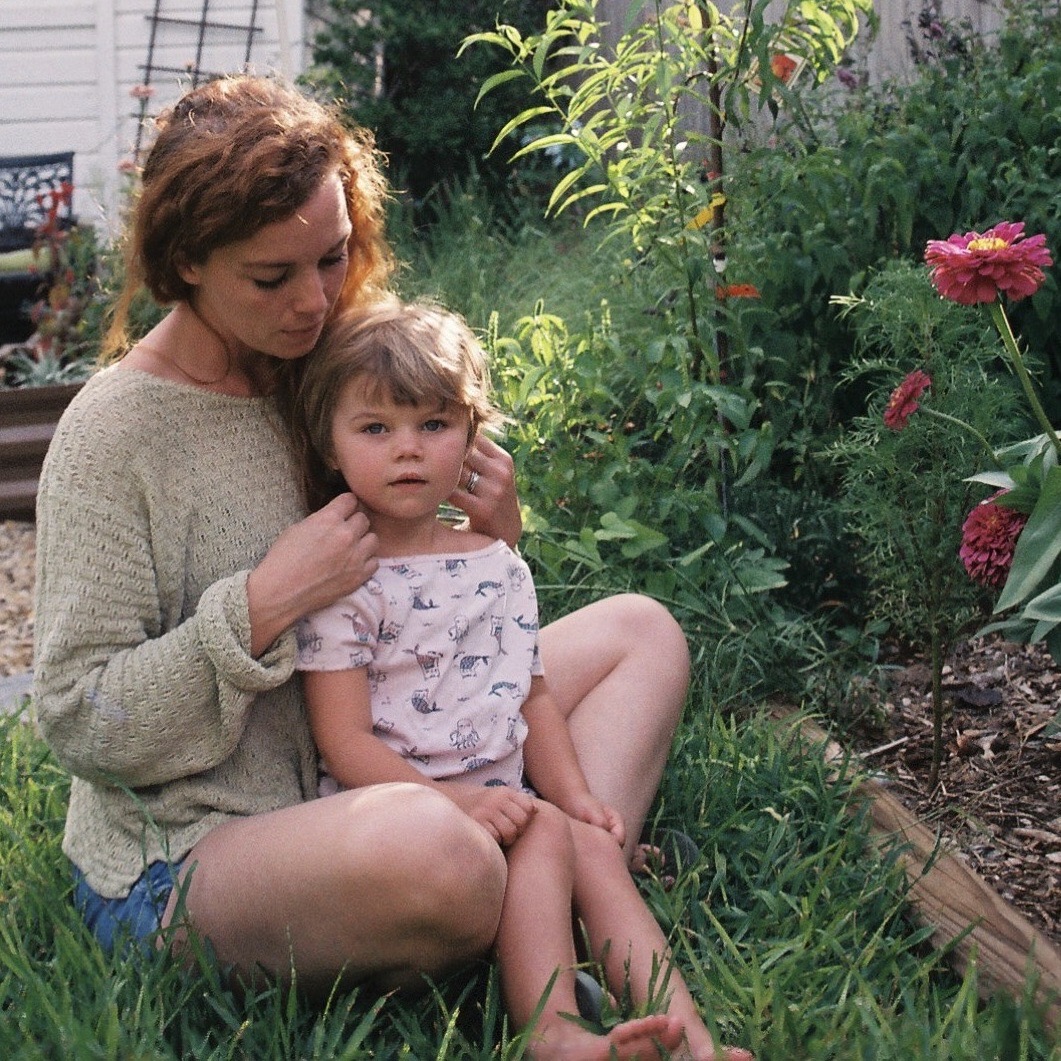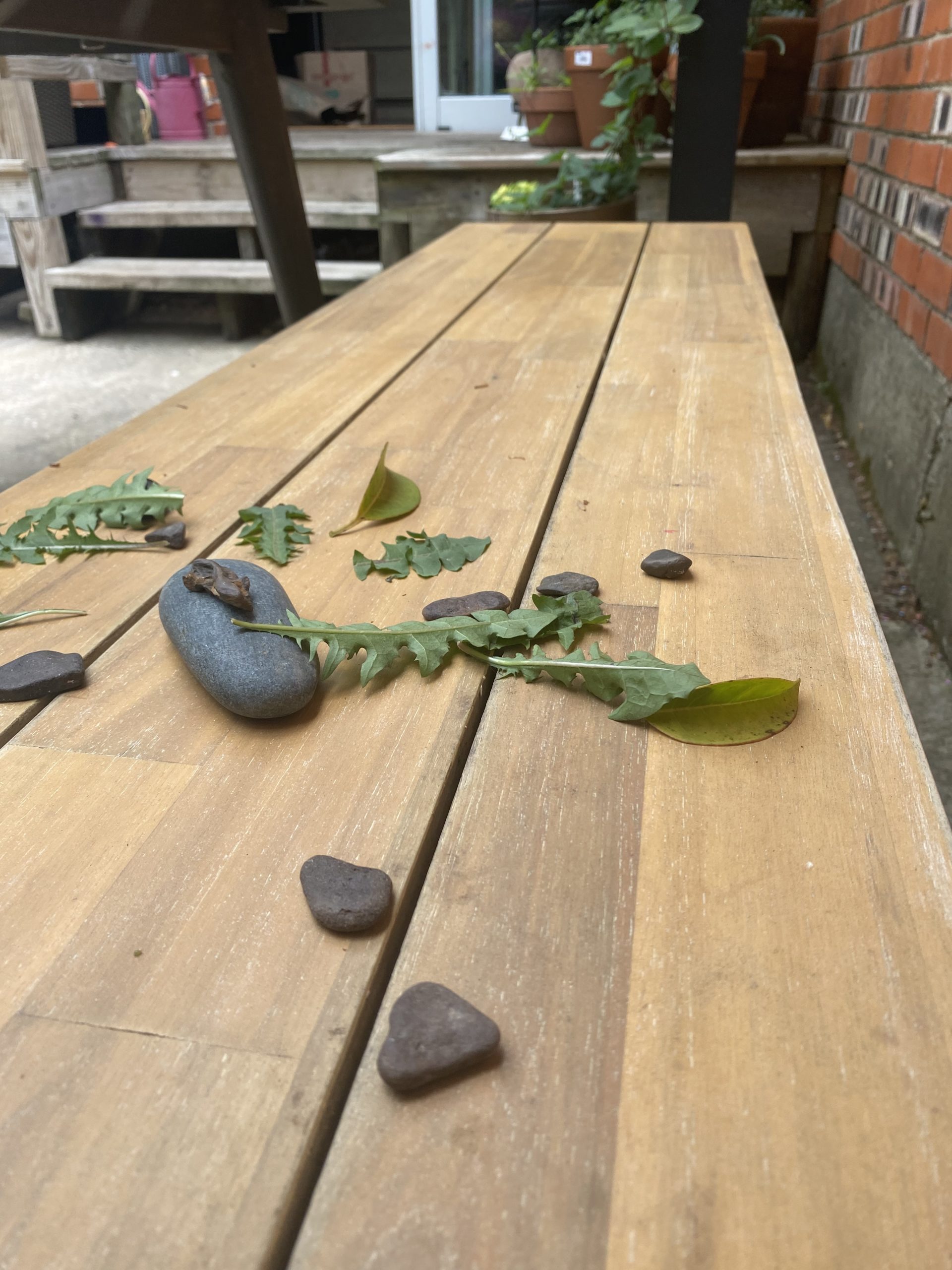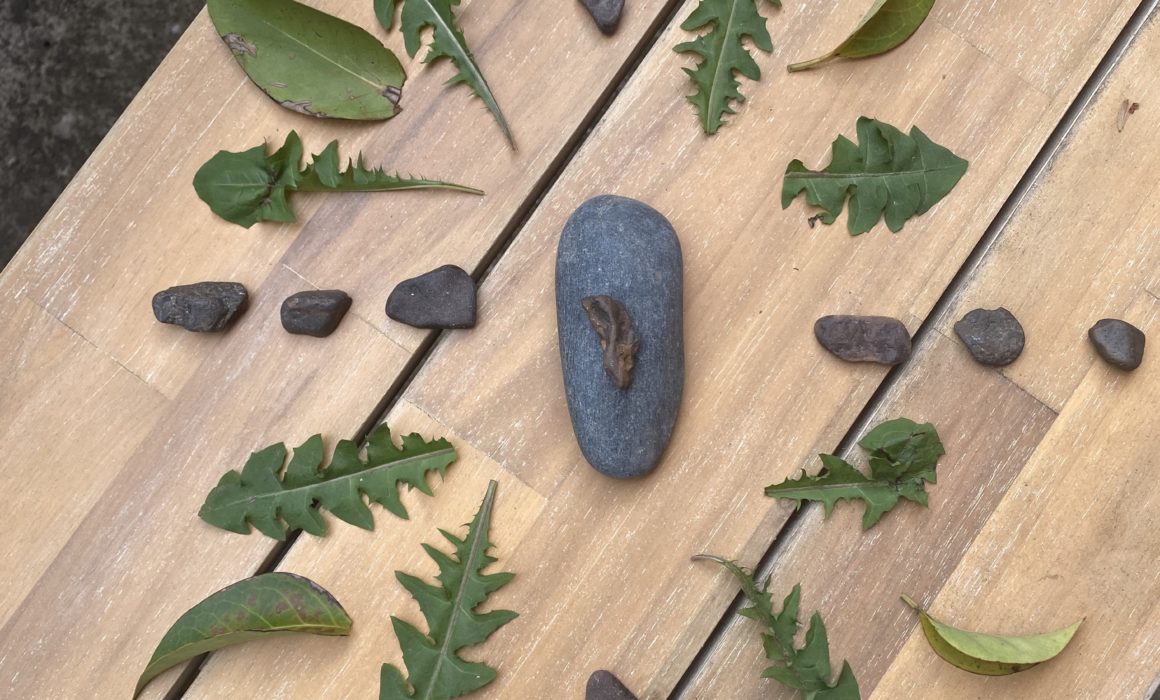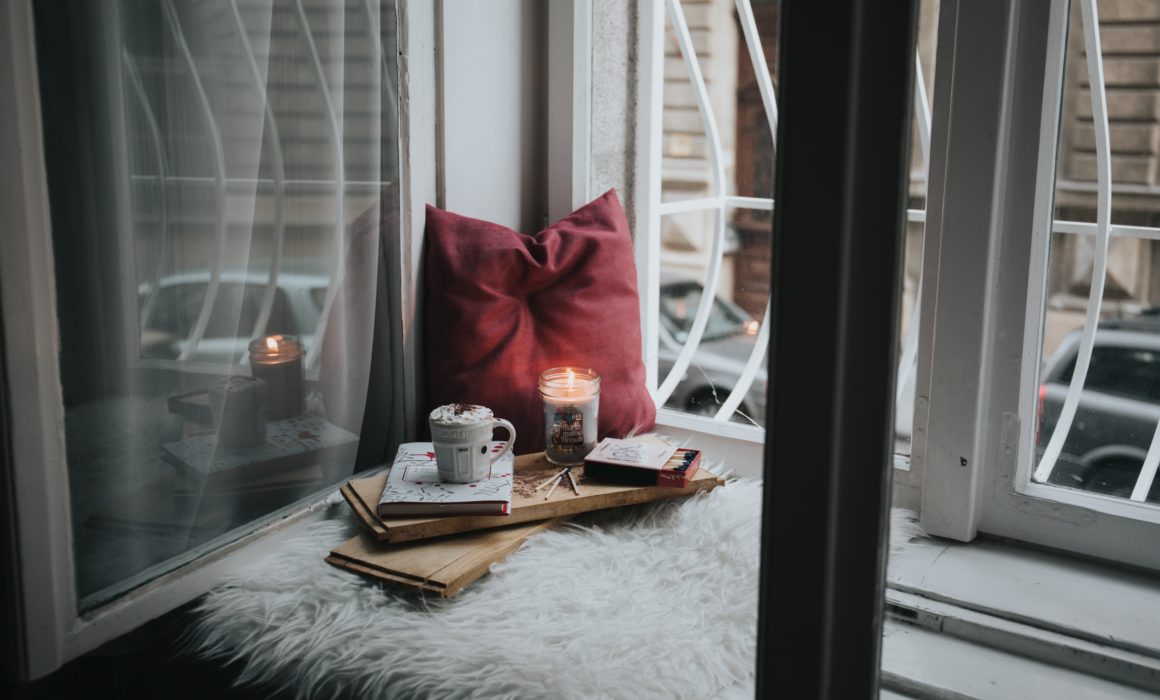The garden’s healing force
There seems to be a broad assumption that our internal world and our external world are two separate things. When struggling with depression, anxiety, or burnout, we often want to analyze ourselves, fix our thinking, or get some medication to help the brain function seamlessly. We walk around like a brain on a stick believing that when our mood changes, or we feel something we don’t want to feel, our brain can think its way out of it. We assume that a physical problem needs a physical solution and a mental problem needs a mental solution. It makes logical sense. But I want to propose another healing agent: the natural world around us. More specifically, the garden right outside your front door.

Being outdoors makes you feel good. Hearing the overlapping songs of birds swooping from trees, noticing the settlement of minerals in the rock formations of a canyon, plunging your hand in the soil to mix in compost, denting the surface to plant a seed. Is there anything more centering?
Human beings are the only living organisms that need to “go be in nature.” Most of us live in a tidy air-conditioned space, and when we’re ready to engage with nature, we plan a trip to a park, we go on a hike, get in a kayak, or plant a seed in the soil. But we have that wrong. We don’t visit nature; we are nature. It’s so simple, but we forget. There is a strong connection between our outer world, our relationship with the natural world, and our brain and body chemistry.

In my own life, I have been on a path toward understanding this more fully. It is a simple truth, that we are nature, and that nature can heal us. And yet, so many of us partition it off from our daily lives. This is why I decided to pursue horticultural therapy. To read the full article published in the Dallas Morning News, click here. (you have to have a DMN subscription to read it) And see below for some simple garden activities to begin to engage with nature in a new way.
Here are two practices you can do in your garden space that may help you in your personal growth. For the purposes of this exercise, a garden space just means: your backyard, your back porch, your patio, your courtyard, or a balcony with a potted plant. It can be 12 square feet or half an acre. Remember that we don’t go into nature, we are nature. It is all around us and it is in us. Therefore, it is the most natural thing in the world to be present to your natural surroundings.
A practice for someone who is burned out, stressed or anxious.
Description: Burn-out and stress can be caused by a mismatch of your values and gifts, and what is asked of you in your daily life. We often have to devote our attention to a task that we are too tired or ill-equipped to handle. A person who is burned out and stressed out is longing for some restoration and mental rest. In nature, we can use “involuntary attention” to create a sense of relaxation. Involuntary attention is what happens when you sit on your patio watching the birds or mindlessly weed your garden. You are just aware enough of the task at hand, while the rest of your mind gets a breather.
Reflection:
Check in with your body as you begin this practice in nature. What are you carrying with you into this moment? Where do you feel it in your body? Try not to analyze yourself, or fixate too much, and try not to solve any problems mentally. Take a breath and picture breathing into those tense places in your body. After the nature activity, return to this exercise. See what has changed and check in with your body again.
Activity:
Go throughout your outdoor space finding leaves, flowers, sticks, and petals. Whatever material you see. See if you can get one piece of plant material for every item on your to do list. Or choose one to represent each burden you are carrying today. As you lay them out, think about how you can release your worries and open up your grip of control over your life. After you have finished laying out the design. Take a moment, then blow them all away as a symbol of letting go of your stress.


A practice for someone who is depressed or grieving.
Description:
Depression is a complete lack of hope for the future. There is a felt sense of permanence to it when you are in the middle of it. I often notice that the more a person attempts to pull themselves out of it by thinking more positively, it only shines light on how powerless they feel to do anything about it. For those reasons, this reflection and activity focuses on acceptance and acknowledgment of depression.
Reflection:
Take a moment to acknowledge your depression. It might feel like discouragement, sadness, grief, or disappointment. What does it feel like today? Write that word down. Let yourself feel it for a moment. Remember that emotions aren’t permanent, they come and go live the waves of the sea.
Activity:
For this activity you will need a seed or small plant, soil, small pot or space to plant and a small piece of paper towel or toilet paper.
On the piece of paper towel or toilet paper, write one hope you have about yourself even as you are experiencing depression. This can be something concrete: “I hope this plant grows.” Or a deeper longing: “I want my life back.”
Place your paper in the bottom of the pot or in a hole in the ground. Plant it in with the plant or seed. When you start to grow something you cultivate the seedlings, but you also have to trust that the water and sunlight will make it grow. In the same way, we set our intentions for our own growth and healing, but we have to trust that healing happens in its own time, and our body and mind will find a way through.
Morgan Myers is a family counselor in Dallas. She wrote this for The Dallas Morning News.











